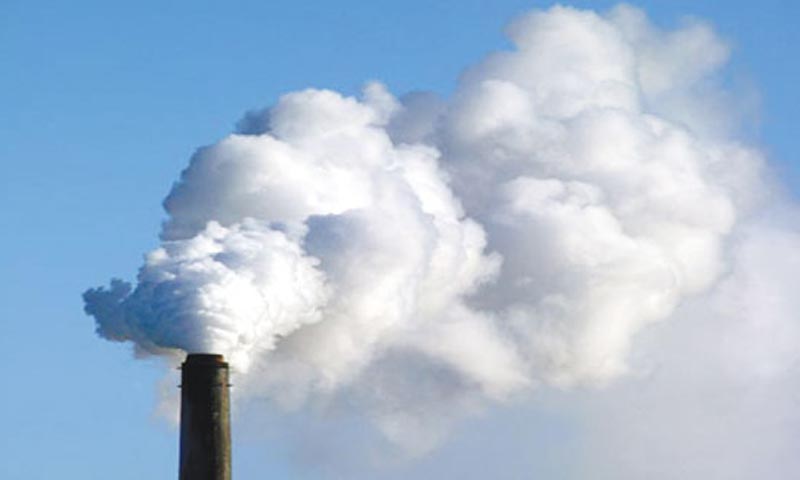THE severity of Karachi’s environmental problems, chief amongst them air pollution, are well known. If the government goes ahead with the proposal of establishing the Pakistan Power Park Company (PPPC) in Gadani, Balochistan, the health hazards faced by millions are certain to intensify.
On Aug 19, a week before announcing his plans for the PPPC, Prime Minister Nawaz Sharif criticised the earlier government for starting construction on the Neelum-Jhelum power project without having laid down power lines to connect it to the national electricity grid. But his own government’s plan betrays similar irrationality.
The PPPC would generate 6,600 megawatts of electricity through 10 coal-powered plants using imported coal. Gadani is a bustling commercial town barely 20km west of Karachi. Already located there is the Hubco Power Plant, generating 1,200MW of electricity and sending up massive plumes of smoke and emissions. Nearly all through the year, the wind blows directly from Gadani towards Karachi.
While the proposal has been made public, neither the government nor Wapda have initiated the environment impact assessment (which would also be required before approaching multilateral donors for financing a project tagged at an initial cost of $14 billion). On the ground, however, eviction notices under the colonial-era Land Acquisition Act, 1894, have gone out to the villages of Mauza Janobi Mawoli and Mauza Kund to make room for the PPPC.
According to Dr Moazzam Ali, director of the Institute of Environmental Studies at Karachi University, “coal-fired power plants generate massive quantities of greenhouse gases, toxic airborne particulate matter and tons of residual ash.
Globally, these plants are considered amongst the worst environmental polluters.
“A typical 660MW coal-fired plant draws up to three billion gallons of water annually for its cooling systems, adversely affecting marine ecology. Global dependence on coal-fired power plants is, therefore, steadily going down, except in China.”
Dr Shahid Naseem, PhD, a geogenic disease expert, observes that the emissions by the PPPC could easily set new records for greenhouse gasses and airborne particulate matter, adding acidic and toxic pollutants such as sulphur dioxide, nitrogen oxide, arsenic, boron, lead, selenium, mercury, chromium, etc, into the environment.
Just 1pc emission of sulphur by the PPPC would mean the annual addition of over 312,206 tons of sulphur in Gadani, Hub and Karachi’s micro-climates. Once these pollutants start to dissolve in the waters of Hub Dam, Haleji and elsewhere, the fallout in terms of health and habitat can be estimated. Existing sulphur and other particulate emissions from Hubco, together with those from the Byco Oil Refinery, mean that the maximum permissible threshold has already been breached in the Gadani area.Several other questions need to be answered too.
One of these is financing. Leading global sources of capital have announced a major shift away from financing coal-fired power plants.
Since South Africa in 2010, the World Bank has not committed to fund a single coal-fired power plant, and even the South African venture was opposed by several countries on the grounds of environmental concerns.
Eminent physicist and environmentalist Dr A.H. Nayyar grudgingly accepts that “coal continues to be an attractive fossil fuel because of the much more rapidly increasing prices of furnace oil, diesel, etc. But it should only be allowed under the strict condition of using clean-coal technologies. Clean-coal technologies obviously increase the cost of energy production, which cannot be helpful in attracting investors.”
Then, sustainable industrial growth demands powerful regulatory mechanisms — a capacity that Pakistan has yet to demonstrate. Many experts fear that in absence of a tough and informed regulatory body, old and inefficient plants (commonly known as grandfather plants) that are being decommissioned all over the world could start popping up at the PPPC. The 2009 gift of a 320MW thermal power plant, built by General Electric and originally installed in 1973-74, would be a good example. After 35 years of service in the UAE it became obsolete and is currently collecting dust at Karachi port.
Another challenge to the establishment of the PPPC is posed by the imported coal that is to be used. Experts at the National Institute of Oceanography concede that detailed oceanography studies specific to the project are yet to be carried out. Yet they suggest that extremely long jetties and coal-conveying systems would be required to achieve considerable depths for incoming Panamax and Capesize class cargo ships — a prerequisite for the daily import of 85,000 tons (31 million tons annually) of coal needed.
To accommodate such ships, the government would have to construct breakwaters to protect jetties, and coal-conveying systems.
The prime minister was briefed that Gadani could be suitable location because it was already connected to the national power grid at Jamshoro. But, crucially, the current transmission system has no surplus capacity; an additional system will be required.
The bottom line: Gadani is not the rational choice for the power park, and the proposal should be revisited.













































